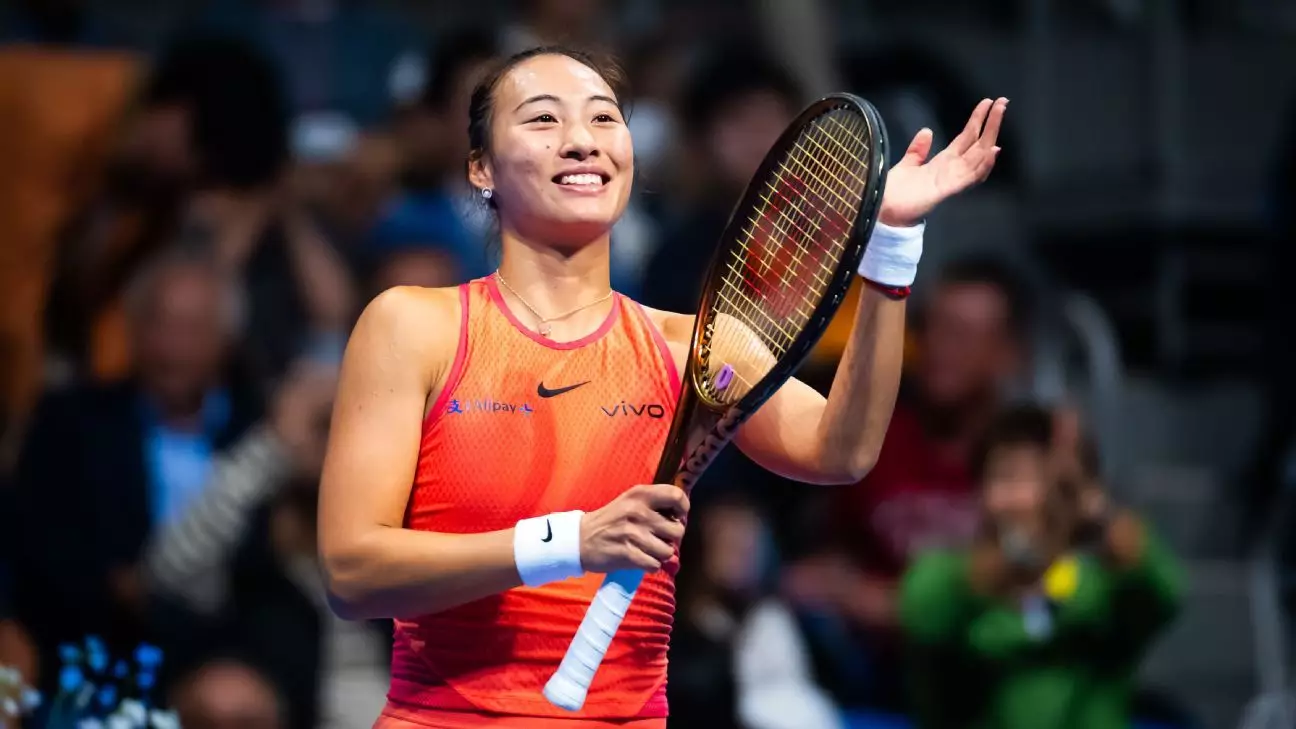In a calculated decision reflecting her priorities for the upcoming season, Olympic gold medalist Zheng Qinwen has announced her withdrawal from the United Cup mixed-teams tournament scheduled to commence later this month. This choice underscores a growing trend among elite athletes to prioritize their mental and physical well-being, particularly after an exhausting competitive season. Unlike many sports figures who may feel compelled to continuously participate in events, Zheng’s decision to refocus on recovery and training illustrates her maturity in navigating the pressures of professional sports.
Zheng’s 2024 season has been nothing short of phenomenal. After reaching the finals of the Australian Open, where she faced Aryna Sabalenka, her trajectory only soared higher as she clinched a gold medal at the Paris Olympics. Finishing as a runner-up at the WTA Finals solidified her status, ending the year ranked fifth in the world. Her impressive achievements within this singular year highlight not just her talent but also her potential trajectory in the competitive landscape of women’s tennis.
With Zheng stepping aside, the dynamics of the Chinese team at the United Cup will shift significantly. Gao Xinyu, currently ranked at No. 175 globally, will now take on the mantle as the highest-ranked female player representing China. This alteration brings inherent challenges, as Gao will need to adapt quickly to assuming a leadership position generally held by higher-ranking players. Meanwhile, Zhang Zhizhen, ranked 45th, will spearhead the men’s contingent, leading China into competition against Brazil in Perth.
Zheng’s decision to withdraw signals a strong resolve to prepare for the 2025 season, specifically targeting the year’s first Grand Slam. The emphasis on rest and recovery is indicative of a strategic long-term approach, which can set a potential precedent for future athletes who may feel the intense pressures of the sport. By allowing herself the time needed to recuperate physically and mentally, she demonstrates an understanding that yielding to immediate competitive pressures can sometimes lead to longer-term setbacks in performance.
Zheng Qinwen’s absence from the United Cup is a poignant reminder of the balance athletes must maintain between competition and self-care. As she prepares for the Australian Open set to begin on January 12, her focus seems aligned not just with her ambitions but also with a deeper understanding of her own capacity and limits. Fans and followers of Zheng are left eager for her return to competitive play, hoping to see her further build on the incredible foundation she established in 2024. The upcoming year promises to be pivotal, with many anticipating how this strategic decision to withdraw will benefit her career trajectory in the long run.

